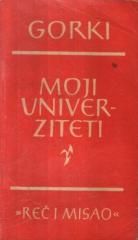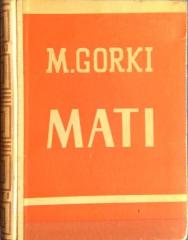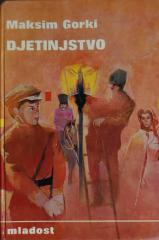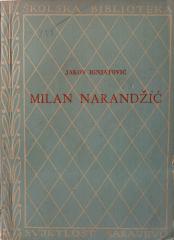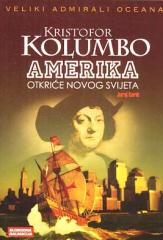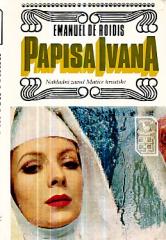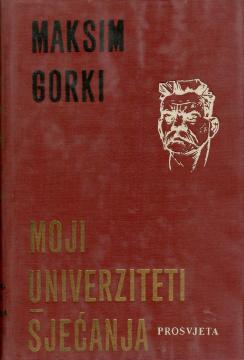
Moji univerziteti / Sjećanja (V. I. Lenjin, Lav Tolstoj, A. P. Čehov)
"My Universities", the third part of Maxim Gorky's autobiographical trilogy, completes the story of his maturation and intellectual development. "Memories" bring autobiographical records of meetings with V. I. Lenin, Leo Tolstoy and A. P. Chekhov.
The novel begins with Alexei's arrival in Kazan, a city that represents for him a symbol of hope and intellectual progress. He is convinced that he will get a formal education there and find a way to a better life. However, the reality is harsh. Aleksei has no means for schooling and is forced to do hard work to survive.
While working as a manual laborer, Aleksey begins to visit "universities of life" – informal gatherings of workers, intellectuals and political activists. These gatherings open the door to the world of literature, philosophy and ideas about social change. Through conversations and interactions with various people, Alexey gradually develops his revolutionary ideas and critical view of society.
Despite hunger, poverty and constant struggles for survival, Aleksey finds solace in books and learning. In the end, he comes to the realization that formal education is not the only path to knowledge. The life lessons he acquired among people and through his own experiences become his real "universities".
"My universities" is not only the story of his personal development, but also a critique of society and the system that discourages the working class from getting an education. "My Universities" is a powerful ending to Gorky's autobiographical trilogy. This book highlights the value of self-study, willpower and fighting for justice, making it relevant even today.
This work provides an intimate insight into the personalities of Lenin, Tolstoy and Chekhov, the ideas and influence they had on Gorky, but also on the wider social and cultural context of Russia in the late 19th and early 20th centuries. The book is divided into three parts, each dedicated to one of these great men, with an emphasis on their personal and professional qualities, conversations with Gorky and reflection on their significance.
- Gorky describes Lenin as an extremely intelligent, charismatic and determined leader. He speaks with special admiration of his simplicity and sense of humor, but also of his passionate dedication to the ideas of the revolution and the betterment of the working class.
Considers Lenin's philosophy, energy in political work and his ability to inspire others. Nevertheless, Gorky does not hesitate to express his own reservations about certain Lenin's ideas, showing the complexity of their relationship.
- Gorky is fascinated by Tolstoy's incredible intellect, humanism, and philosophical reflections on life, death, and society. In "Memories" he brings a series of anecdotes that illustrate Tolstoy's deep connection with nature and a simple way of life.
He also emphasizes Tolstoy's moral strictness, which sometimes leads to conflict with his contemporaries. Gorki describes him as a complex personality – a genius thinker, but also a man prone to internal dilemmas and contradictions.
- Gorky portrays Chekhov as a modest, warm and witty man, who was always sympathetic to people from all walks of life. He especially looks at Chekhov's ability to show deep truths about human nature in his works through simple stories.
Gorky admires Chekhov's courage in facing the disease (tuberculosis), as well as his gentleness and dignity. Their friendship was characterized by mutual respect and understanding.
Nema primjeraka u ponudi
Poslednji primjerak je nedavno prodan.
